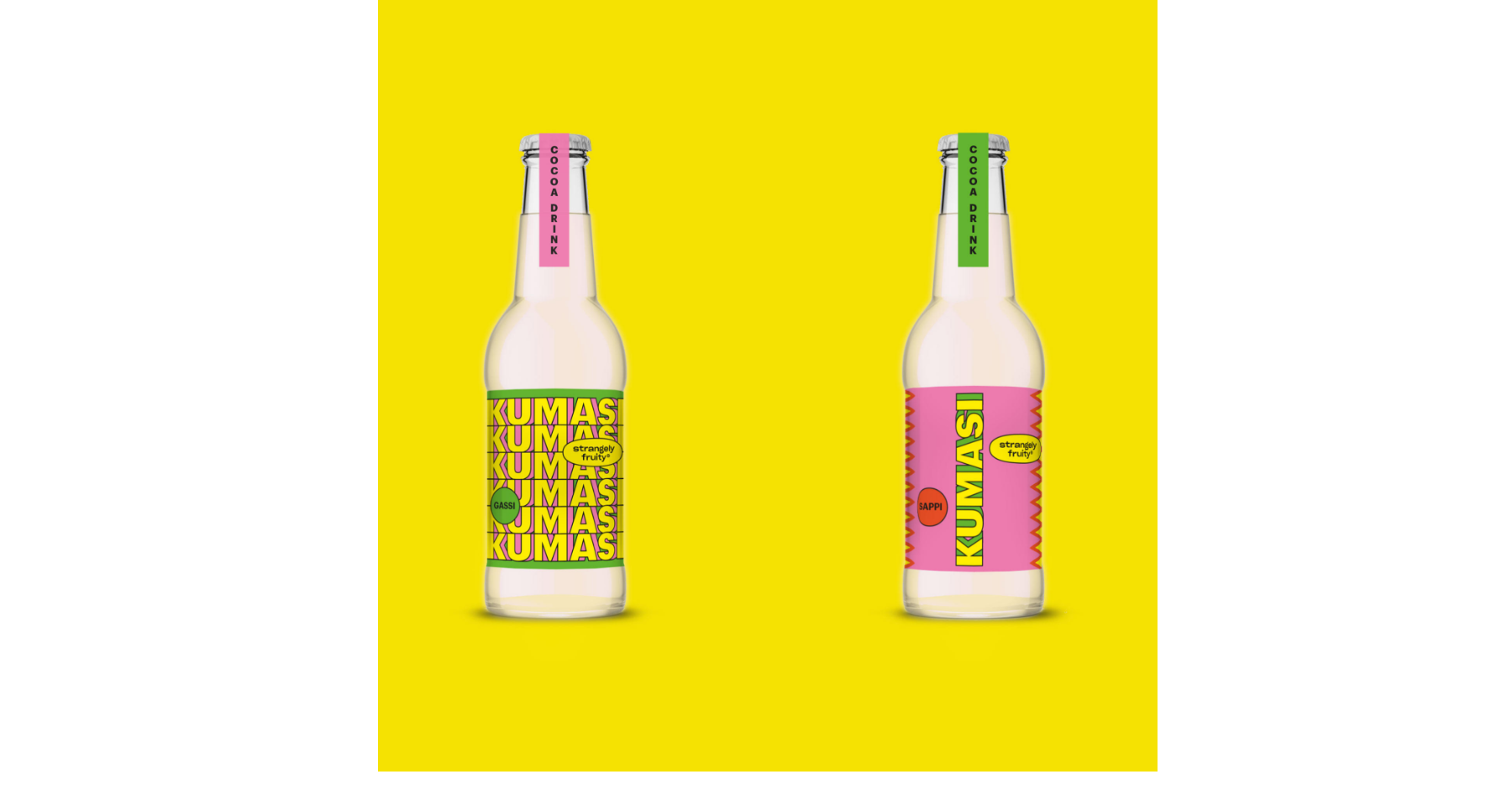As well as being a Master’s student, Linda Klunder (25)is the co-founder of Kumasi Drinks, a start-up that makes juice out of cacao fruit pulp. ‘The fruit pulp is a waste product, and we make juice out of it. So farmers can earn more and food waste is reduced.’
Klunder did her first degree at Groningen University, where she studied International Relations. ‘During my internship at the Dutch Embassy in Saudi Arabia, I realized that development work was more up my street. After getting my degree I went to Egypt for an internship with Masterpeace: an organization whose mission is spreading peace. There I helped people all around the world to set up grassroots community projects.’ After her internship, she was offered a job with the organization. ‘Nice work, but there was something missing for me. I really wanted to see what the impact of the projects was. It was all very qualitative, whereas quantifying impact is important too. I looked into which were the best Master’s programmes for learning to do that. It was quite difficult: I wanted to switch to the econometrics side of things without having the right background for it, and I wanted to go on working for Masterpeace alongside my studies. Nearly all the universities were hesitant about that, if they even responded at all. “A degree is fulltime”, I was told.’
Cacao world
Klunder was given a chance at Wageningen. ‘Study supervisor Sietse Sterrenburg from Management, Economics and Consumer Studies said: ‘Combining your studies with a job is a strength, actually, because you’ll have hands-on experience in the sector your degree is about.” The support I felt I got from WUR was the decisive factor.’ Klunder moved from Cairo to Utrecht to start work at the Dutch office of Masterpeace. For her studies, she commuted to Wageningen. ‘I hadn‘t expected ever to study in Wageningen,’ she says. ‘It always felt like the middle of nowhere. But without my Master’s I wouldn’t have ended up in the cacao world.’
I’m a great chocolate lover myself
She got to know that world through the Academic Consultancy Training (ACT) course. ‘The Netherlands is the biggest global importer of cacao. So how come so many cacao farmers are still living in poverty, and what is the role of the Netherlands in that? My ACT group tackled that question for Africa in Motion, an organization that looks at how the African diaspora in the Netherlands can help improve the position of African businesses. That project got me thinking about the cacao industry: who makes my chocolate, and what do those people earn? I am a great chocolate lover. Fairtrade is not a real solution – cacao farmers are still living in poverty.’
Fairer than Fairtrade
Together with Africa in Motion director Max Koffi, Klunder set up the Cacao Coalition, a platform for inspiring stakeholders in the cacao industry to make the supply chain fairer. ‘That way I could continue working in the cacao world and talking to experts, organizations and activist consumers about it. I got in touch with Lars Gierveld, who had just made a documentary about Nestlé’s supply chain. In that documentary, he tasted the fruit pulp of a cacao fruit. He was completely blown away by the sweet taste of something that is usually thrown away. Lars saw an opportunity: if you make juice with the fruit pulp, you don’t have to throw it out, and you can pay farmers for a product they already have and that no one buys off them’
Klunder and Gierveld got on like a house on fire from the start. ‘I kept on challenging him in our talks together: how are you going to tackle this? How are you going to have an impact? Then he said: “You’ve got that impact knowledge, I can tell the story. Do you want to start Kumasi* Drinks with me?”’ Klunder resigned from Masterpeace and started as Head of Impact with the start-up in February 2020.
The support I felt I got from WUR was decisive
Meanwhile, she continues with her Master’s studies, focussing on impact. ‘For my thesis, I am researching the impact of giving money to Rwandan women on women’s empowerment. How can you collect data, and what can you used them for? What do you want to measure, and what are the possible negative effects of interventions? I bring what I learn to Kumasi.’
Fast-tracked in Covid times
Soon after Kumasi Drinks got started, the coronavirus crisis broke out. ‘And where do you want to sell juice? To restaurants. But during the crisis, we were approached by KOA, a Ghanaian company with a machine with which they can produce very stable juice. By leaving the production to them, we could focus on ‘business to consumer’. That saved us two years. We organized tasting evenings and we chose two products: Gassi and Sappi – i.e. with or without fizz.’
Kumasi is now for sale in about 15 specialist chocolate shops in the Netherlands. ‘And it is available online through Kumasi-drinks.nl,’ says Klunder. ‘At the beginning of 2021, we want to scale up to bigger shops and in 2022 we want to get into the supermarkets. Scaling up is important if you really want to have an impact.’

 Photo: Kumasi Drinks
Photo: Kumasi Drinks